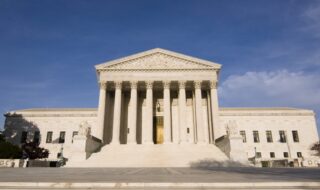NLRB Takes Aim at Employer Severance Agreements
NLRB Takes Aim at Employer Severance Agreements
March 30, 2023
NLRB Takes Aim at Employer Severance Agreements
Two recent happenings out of the National Labor Relations Board (NLRB or Board) severely limit the way a business can use confidentiality and non-disparagement provisions in severance agreements. Going forward, employers must be extra vigilant in ensuring agreements with employees use precise and narrow language.
NLRB General Background
The NLRB is responsible for implementing the National Labor Relations Act (NLRA or Act). Congress passed the NLRA to give employees more bargaining power through the right to organize. Section 7 of the NLRA gives employees the “right to self-organization, to form, join, or assist labor organizations, to bargain collectively through representatives of their own choosing, and to engage in other concerted activities for the purpose of collective bargaining or other mutual aid or protection[.]” Section 8 makes it an unfair labor practice for an employer to “interfere with, restrain, or coerce employees” in the exercise of their Section 7 rights. The NLRA generally applies to all private employers and employees with no small business exemption.
NLRB Board Decision
The NLRB’s recent decision in McLaren Macomb, 372 NLRB No. 58 is significant and detrimental to employers.
In McLaren, a hospital permanently furloughed 11 employees deemed nonessential during the COVID-19 pandemic. The hospital offered each employee a severance agreement, which broadly prohibited disparagement of the hospital and required that the agreement’s terms remain confidential. Specifically, these provisions read:
- Confidentiality Agreement. The Employee acknowledges that the terms of this Agreement are confidential and agrees not to disclose them to any third person, other than spouse, or as necessary to professional advisors for the purposes of obtaining legal counsel or tax advice, or unless legally compelled to do so by a court or administrative agency of competent jurisdiction.
- Non-Disclosure. At all times hereafter, the Employee promises and agrees not to disclose information, knowledge or materials of a confidential, privileged, or proprietary nature of which the Employee has or had knowledge of, or involvement with, by reason of the Employee’s employment. At all times hereafter, the Employee agrees not to make statements to Employer’s employees or to the general public which could disparage or harm the image of Employer, its parent and affiliated entities and their officers, directors, employees, agents and representatives.
The Board made three important findings: 1) the Employer violated the NLRA by furloughing the employees without first notifying and bargaining with the Union; 2) the Employer violated the NLRA by communicating and dealing directly with the employees regarding the severance agreement and bypassing the Union; and 3) the Employer violated the NLRA by the mere offering of this severance agreement to employees.
Finding (3) is the most concerning for employers going forward. In overruling two prior decisions, the Board concluded that “severance agreement is unlawful if its terms have a reasonable tendency to interfere with, restrain, or coerce employees in the exercise of their Section 7 rights, and that employers’ proffer of such agreements to employees is unlawful.” This means that it is irrelevant whether an employee signed the agreement.
The Board went even further, stating that Section 7 rights “do not depend on the existence of an employment relationship” and these rights extend to channels outside of the employee-employer relationship such as political forums, newspapers, media, social media, and public communications.
The Board concluded by discussing the broad language in the provisions above, finding that they did “interfere with, restrain, or coerce employees’ exercise of Section 7 rights.” According to the Board, the non-disparagement provision prevented public statements by employees about the workplace and the confidentiality provision’s terms created a chilling impact of employees’ Section 7 rights.
NLRB General Counsel Memo
After McLaren Macomb, the NLRB’s General Counsel issued Guidance Memo 23-05 (Memo) about the decision. The Memo summarized McLaren in the following way: “where a severance agreement unlawfully conditions receipt of severance benefits on the forfeiture of statutory rights, the mere proffer of the agreement itself violates Section 8(a)(1) of the Act because it has a reasonable tendency to interfere with or restrain the prospective exercise of those rights[.]”
Employers should review the Memo, as it sets forth the General Counsel’s extremely broad interpretation of the McLaren decision. With this guidance directed toward regional NLRB officials, the broad interpretation will have a trickle-down impact to all NLRB personnel. The Memo also answers some questions about McLaren’s impact on employer-employee agreements.
FAQ’s
1. Is this decision retroactive?
As the Memo states, “[b]oard cases are presumed to be applied retroactively and this decision has retroactive application.” While the NLRA has a six-month statute of limitations, the NLRB plans to ignore this Congressional mandate. According to the Memo, maintaining or enforcing a previously-entered severance agreement with problematic provisions “continues to be a violation[.]”
2. Are severance agreements banned entirely?
Not quite. The Memo suggests that severance agreements waiving only “the signing employee’s right to pursue employment claims and only as to claims arising as of the date of the agreement” may still be permissible.
3. When can a business use confidentiality or non-disparagement provisions going forward?
Confidentiality – A confidentiality provision must now be “narrowly-tailored” to only prohibit the release of proprietary or trade secret information, must be for a specified period, and must be based on legitimate business interests.
Non-Disparagement – To continue using a non-disparagement provision, it must be narrowly-tailored, justified, and limited to defamatory statements by employees. Defamatory means that the statement is not only untrue, but maliciously so, that is made with knowledge of its falsity or reckless disregard for the truth of the statement.
4. Does the decision apply to other common provisions and employer-employee agreements?
The Memo says that the Board’s decision will impact other common provisions such as 1) non-compete clauses; 2) non-solicitation clauses; 3) no-poaching clauses; 4) broad releases of liability; 5) covenants not to sue; and 6) post-termination cooperation clauses.
5. Can employees say anything they want to about a business now and get away with it?
Essentially, yes. As mentioned in question 3, the only acceptable prohibitions in non-disparagement provisions going forward are defamatory statements. Defamation is incredibly hard to prove.
Employers with additional questions should consult with their labor attorney or reach out to the NFIB Legal Center at info@nfib.org. Employers can also download a copy of NFIB’s Guide to Managing Unionization Efforts for more information on the NLRA.
This information is provided for informational purposes only and should not be construed as legal advice.
NFIB is a member-driven organization advocating on behalf of small and independent businesses nationwide.
Related Articles














